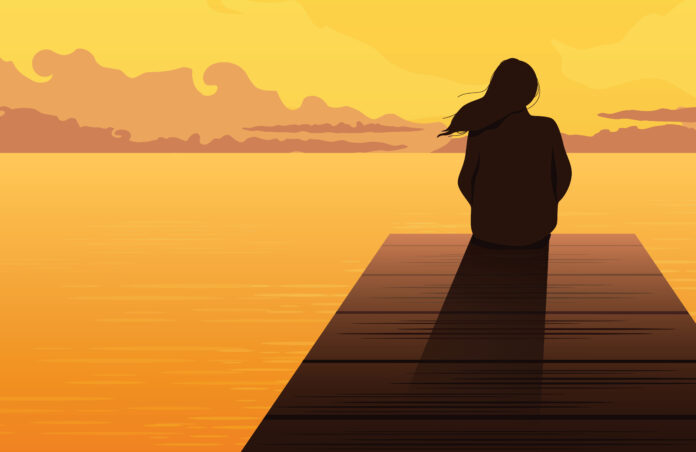The “Turning Point” column in your Chanukah edition entitled “The End of the Silence” was sad but also inspiring. It was sad in that the siblings had suffered for 12 years without any contact, but also inspiring since all it took was a text message offering unconditional support to end the silence. I too have a sister who has not been responsive to any overture from her immediate family members for a long time. But unlike the person who wrote that column, we have not only been blocked from visiting her in person but also from communicating with her by landline, cellphone, WhatsApp and text messages.
The article inspired me to reach out to my sister here, on the pages of AmiLiving, to try to end the silence through a heartfelt letter, hoping that she will see it herself or that someone else will share it with her.
Dear Sister,
I want you to know that all of us love and care for you. We are very worried about your well-being, as well as the well-being of your children. We are in pain for you and daven for you constantly. We are all ready to jump in and do anything we can to help you wherever it is needed, whether it’s money, food, clothing, therapy, emotional support or even a safe house.
My dear sister, please know that it is not okay to be forced into isolation or to have your social life taken away from you. It is not okay to be forced to close your lucrative business. It is not okay to have to make an agonizing decision about loyalty and be forced to choose between a spouse or family members, including parents. Please know that these are acts of domestic abuse. They are not the road to healing or the path to recovery.
As sisters, you and I know that every day of silence is one day too long as it is filled with painful suffering. My dear sister, that is why I am begging you to take the first step by reaching out for help. Please, please make contact. There is a whole system in place waiting to provide you with the unconditional support you need in order to get through this challenge. Your siblings and parents are all here for you, and we are united in our desire to help. All you need to do is reach out so the pain can end.
With love, concern, and an abundance of patient care,
Your Sister
* * *
After receiving this letter, Ami reached out to Shoshannah D. Frydman, PhD, LCSW, to address it. Shoshannah is the executive director of the Shalom Task Force, an organization committed to combating domestic violence and fostering healthy and safe relationships in the Jewish community through its critical programs. Dr. Frydman has worked to alleviate domestic violence in the frum community for over 20 years.
From reading this letter, is there something that jumps out at you and says, “This person is definitely not imagining things. Her sister is being abused.”
I never want to make an assumption about someone else’s experience as each case is unique and patterns can be different, but we can generalize. Isolation is a very big red flag for domestic abuse. We define domestic abuse not only as physical but also as a pattern of behavior that involves power and control over others. Isolation is the manifestation we see most often, even very early on in marriage, and it can be very subtle. It can be statements like “Your friends aren’t frum enough” or “Your family is bringing you down.” Bit by bit, the individual who is being isolated finds that her world becomes smaller and smaller.
What we see happen is that the family will give up on that person. They will be so insulted that they’ll say, “If you don’t want anything to do with us, fine.” Then, when the victim is finally ready to reach out, there’s no one for her to reach out to. We always tell people, “Even if you feel really hurt, don’t make it reciprocal.” They have to know that for whatever reason, the person doesn’t feel safe or ready to reach out.
What about when they are ready to reach out? How should the family react?
Don’t revisit the past; just be available in the present in a very nonjudgmental way and without telling the abused person what to do. You don’t want to mimic the dynamic of power and control. When this sister writes that the family is offering her unconditional support, that’s beautiful. It’s a wonderful way of communicating with someone who is being abused. To be clear, though, can I say with certainty that this person is being abused? No. I don’t know the people or the particulars.
Could the isolation have been self-imposed by the woman?
We don’t know. That’s why my very short response is that even though we don’t know the case history, what we’re hearing is a pattern of behavior that indicates power and control in the relationship. It may be a situation where she has made her own decision, although if that’s the case, it’s not the healthiest course of action even if her family is horrible.
I would imagine that when someone is cut off from virtually everyone in her life—parents, siblings and friends—it’s indicative that something is terribly wrong. Do you agree?
I don’t want to say that it’s definitely domestic abuse, but there’s certainly something off. When there’s a large family, are you going to tell me that every single sibling did something wrong? Yes, there might be some siblings who did something wrong—but all of them? I have a large family, baruch Hashem, and some of my siblings are closer to each other than others. That’s one thing. But to be completely cut off?
So the isolation definitely jumped out at you, because even if it’s her decision, it’s concerning. Was there anything else that popped out at you?
We don’t know if it’s true, but if someone told me that she had been forced to close her lucrative business…
Let’s work under the assumption that it’s true.
I’ve worked with women who were coerced in different ways to give up their jobs, and they became financially dependent solely on their husbands. Now, there are some families for whom that’s a blessing. It’s a choice they make about how they’re going to run their family, and that’s fine. But that’s a very different scenario. It might look the same on the outside, but the cause is very different.
I can think of a few women whose husbands got them fired or made it impossible for them to work, which further increased their control over their wives. I’m using the example of the wife being in that situation because it’s more typical, but we see it the other way as well. Again, it’s case-specific, but being forced into further dependence without consent is very unhealthy, and it also takes away the person’s sense of self, especially if the job was part of her identity. But again, if it’s a mutual decision because that’s how they want to raise their family right now, that’s not abuse.
This goes back to what I said earlier about looking for patterns of behavior.
What can a family member like this letter writer, who believes that her sister is in an abusive situation, do about it?





















